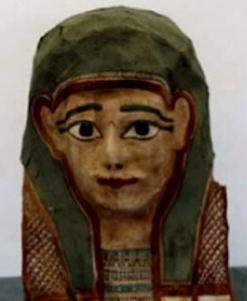
One of the claims I hear all the time from spiritual sceptics is this –
“the Bible we have today is not an accurate reflection of what the original writings said. Over time the text has become corrupted. Scribes have made accidental errors that have changed the meaning of the text. And people with their own agendas have inserted new text to make the book say what they want it to say.”
Most recently, this claim was made by a Newsweek article published just before Christmas. The Bible – so misunderstood it’s a Sin. You can find it here.
http://www.newsweek.com/2015/01/02/thats-not-what-bible-says-294018.html
Here’s a quote from the article – “[No one has read the Bible…] we’ve all read a bad translation – a translation of translations of translations of hand-copied copies of copies of copies of copies, and on and on, hundreds of times.”
In other words – the Gospel texts are ultimately worthless because we can’t trust what they say. If this was true, it would be a good reason to dismiss Christianity altogether. If Jesus Christ’s life, his teaching and his death and resurrection are not history but fiction – then we may as well leave church altogether. And forget all talk of God.
But what if –
What if the transmission of the Bible texts is as accurate as the scholars (tho apparently not journalists) suggest that it is? What if the Gospel text we read today says essentially the same thing that it said when it was written in the first century? Well that would be something, wouldn’t it? That would be big news. No it wouldn’t put an end to outrageous, inaccurate sceptical journalism. But it would pose the question to you and me – maybe it’s time to take a fresh look at Jesus? Who he claimed to be – what he did – and what he promises in those words.
Well a discovery is being prepared for scholarly publication that may do just that. A fragment of the Gospel of Mark dating from the first century – before the year 90 – has been discovered within the mask of an ancient Egyptian Mummy. It has been recovered – and it is being studied right now. This is the oldest written copy of a New Testament text that has been found. Up until now – the oldest copies were from the second century.
You can read more about the find here.
http://www.livescience.com/49489-oldest-known-gospel-mummy-mask.html
This is a text that would have been copied while some of Jesus original disciples still lived (certainly John the Apostle who is believed to have written Revelation around the year 95). This is a copy that is incredibly close to the original written work by Mark himself.
This fragment of Mark is incredibly valuable – because it will help provide hard, physical evidence to help scholars back up their case. The Gospel text did not change over time. It did not become stretched and embellished. None of the textual variants that exist today show any sign of a change in meaning. Yes – there are many punctuation and spelling differences amongst the many copies that exist. Yes there are a handful of passages that may have started elsewhere in the text. And portions (like the end of Mark) that were lost on the oldest manuscripts we know about today (altho this new fragment may change this!) There’s even one sentence thought to be added many years later in one of the letters. But none of it changes the meaning of the text one bit.
The scholar – Bart Ehrman – who is quoted in that Newsweek article is indeed sceptical that we know what the original documents looked like. But even he believes that any changes that might have happened over time had no effect on the essential meaning of the text. This newly discovered first century fragment of Mark will help prove that this position is reasonable.
So what? Well – can I suggest we take a fresh look at what the New Testament says? I believe we have what was originally written. I expect this new discovery to give further evidence of this. And these words – if they let them – will transform our lives…because living with Him is the way to live. He makes everything possible.
“How hard it is for the rich to enter the Kingdom of God!” This amazed them. But Jesus said again, “Dear children, it is very hard[b] to enter the Kingdom of God. In fact, it is easier for a camel to go through the eye of a needle than for a rich person to enter the Kingdom of God!” The disciples were astounded. “Then who in the world can be saved?” they asked. Jesus looked at them intently and said, “Humanly speaking, it is impossible. But not with God. Everything is possible with God.” Mark 10:23-27, NLT

